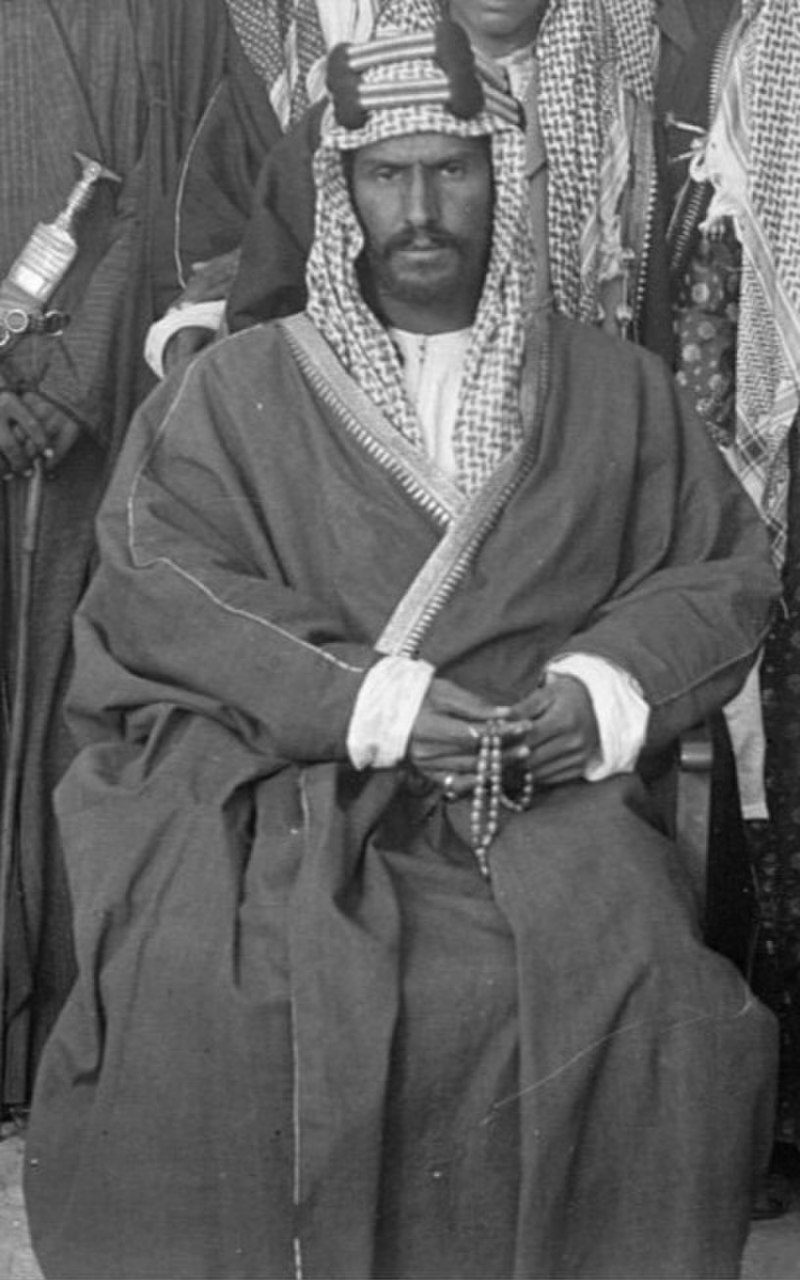Saudi Arabia (Case Study) — 04/03
1/36
There's no tags or description
Looks like no tags are added yet.
Name | Mastery | Learn | Test | Matching | Spaced | Call with Kai |
|---|
No study sessions yet.
37 Terms
Saudi Arabia’s government is a…
Monarchy
(They are a fairly new country and relatively uncomplicated)
Saudi Arabia geography significance
Crossroads of civilizations
Strategic trade location
Iran as potential threat to Gulf
Yemen threat to Red Sea
Home to Mecca and Medina
Benefits of Mecca and Medina for Saudi Arabia (aside from religious)
Lots of income from tourism, which is key to their economy
Saudi Arabia Islam is:
Sunni
Some Shiites in East and on the border with Yemen
Countries that have a historically negative relationship with Saudi Arabia
Iran, Iraq, Syria
Also, currently engaged militarily in Yemen
Which two people started Saudi Arabia?
Muhammed ibn Saud
Muhammed ibn al-Wahab
Saudi Arabia Origin story (and state ending)
Saud and al-Wahab establish first quasi-Saudi state under Ottoman Empire
Al-Wahab provides spiritual legitimacy to Saud
Saud’s heir marries al-Wahab’s daughter (marriage bond b/w two)
Saud State grows around Riyadh — agricultural and trading community
Crushed by Ottomans Egyptian Viceroy in 1818 and state dies
Following the crush of their initial state, the Sauds…
Contest Arabian peninsual with Al-Rashid tribe
Lost contest, and are exiled to Kuwait in 1891
Saud’s return in 1902 and recapture Riyadh (former base)
External interference enabled them to defeat other tribes
Sharif of Mecca
Pre-eminent amongst many tribes
Dominant figure in control

Abd Al-Aziz Al Saud
Abd Al-Aziz Al Saud
Had British support which was crucial to the dominance of the House of Saud. Had external interference.
Sauds Vs. Wahhabi difference
Saud is a huge family/tribe
Wahhabis are also a tribe but are a religious sect
Ikhwan role in Saud dominance
Wahhabi inspired, provided spearhead of al-Aziz’s dominance of Arabia
They themselves are crushed by Saud/British forces in 1930
Saudia Arabia Freedom House Scores
Freedom House: 8/100
Political Rights Score: 1/40
Civil Liberties Score: 7/60
Status: Not Free
Scores: ¼ in 8 categories
Majles al-Shura
King’s Consultative Council (since no national parliament)
2005 Municipal Council Elections
Gave Saudi men opportunity to selec some of their leaders at the local level
Women completely excluded
Eligible electorate consisted of less than 20% of population
Male citizens who were at least 21
Not serving in military
Residents in district for >12 months
½ of council seats were open for election, and the other half were appointed by the monarchy
Common theme in Saudi bureaucracy
Primarily family and business networks (25,000 princes…)
Non-royal families hold key industrial monopolies
Saud social economic health
Unemployment high
Vast social inequalities
But GREAT social welfare program
Saudi Welfare Program
Almost free medical
Financial relief for orphans, widows, disabled, work-place injuries, etc.
Interest-free loans for home construction
Population make-up of Saudi Arabia
Population of 34.8 million
93% Muslim
10-15% Shiite
Oil’s function and prominence in Saudi Arabia
Largest known and accessible oil reserves in the world
Sign first oil production deal with U.S. company
Which provides independence from U.K.
80% of state revenue
45% GDP
90% exports
Oil’s role in Saudi Arabia
Maintains Saudi Arabia’s importance on world stage
Contributes to stability of regime
Cheapest oil to drill (can still make profit at under $30 a barrel)
Oil a significant source of control for House of Saud
Use to try hurt Democrats before mid-term elections
Potential issue with Saudi Arabia’s oil dependence
Loss of income problematic of oil prices drop
Substantial foreign reserves enable flexibility
(E.g. Saudis lose $100b trying to prevent U.S shale industry)
Oil’s effect in Saudi Arabia’s position in OPEC
Strongest OPEC member
Saudi Arabia’s role in Islam
Land of 2 holy sites
Grand Mosque of Mecca
Prophet’s mosque of Medina
Why Saudi Arabia does not have a constitution
Because it would be basing man-made law above religious law
1992 Basic Law
Declares that the Koran and Sunna are the country’s constitution
Islam
Islam = official religion and all Saudis are required by law to be Muslims
Gov. prohibits public practice of any religion other than Islam and restricts religious practices of the Shiite and Sufi Muslim minority sects
U.S. invasion of Iraq 2003
Thousands Saudis went to Iraq in years following the U.S.
Led invasion in 2003 in what they saw as an anti-American and anti-Shiite jihad
Terrorist attacks in 2003 and 2004
Internal dissension
State killed dozens of suspects and detained thousands of others
No shift in political power
2013 pass law forbidding citizens to fight for outside forces
Religious establishment in Saudi Arabia
Very strong and loyal to state
Increasingly criticized by some Saudis and extremist/orthodox Sunni Muslims
Islamic Conference 1969
Created organization as a consistent attempt to have anti-blasphemy laws at UN (to make criticism of Islam illegal)
al-Wahab
Orthodox fundamentalist
Inspired by ibn-Taymiyyah
Hated grave worship and “idols” established in memory of ancestors
al-Wahab beliefs in laws and actions for Islam
Banned prayers to saints, pilgrimages to “special”mosques/tombstones
Those who would not pledge loyalty to Caliph should be killed, their female relatives violated and possessions confiscated
All Sufis and Shiites considered apostate
al-Wahab’s idea for political system
One ruler/authority/mosque now —> Saudi King, Wahhabi Theology, Holy Word
Manifestations of Wahhabism
Isis
al-Nusra (Syria)
al-Qaeda
al-Nusra
Dominant Islamist force in Southern Syria until ISIS emerged